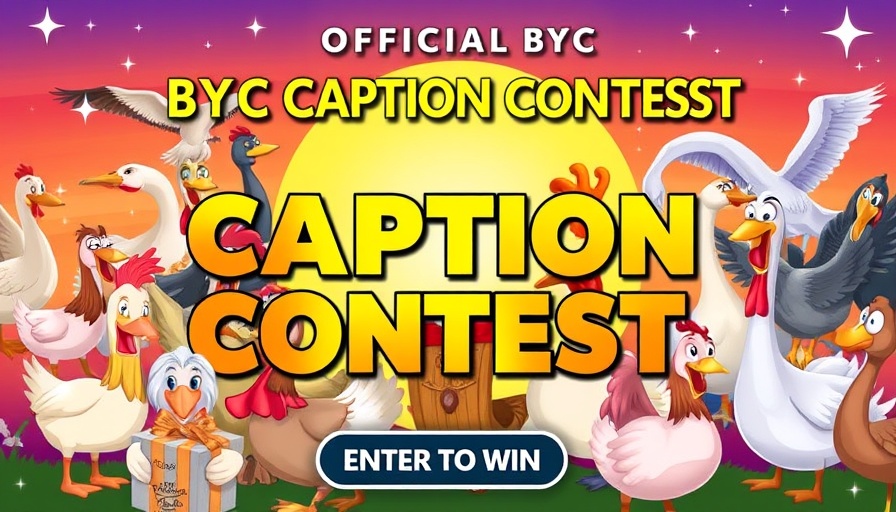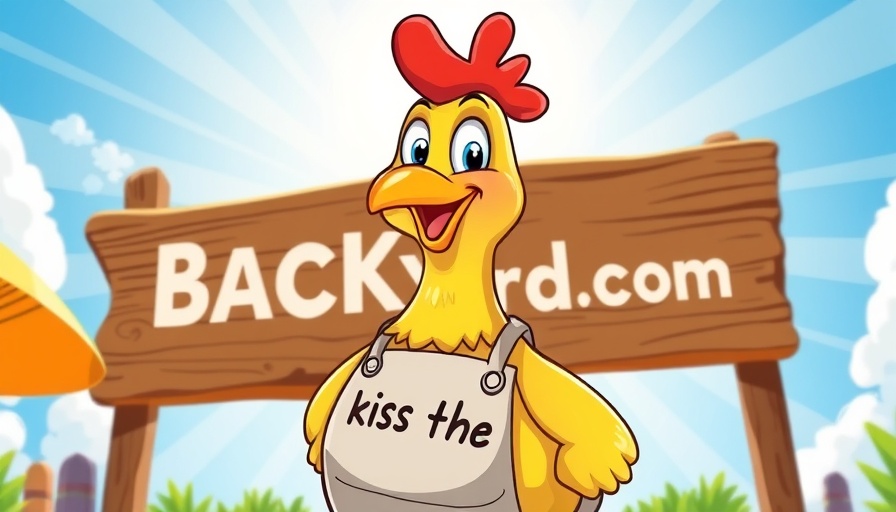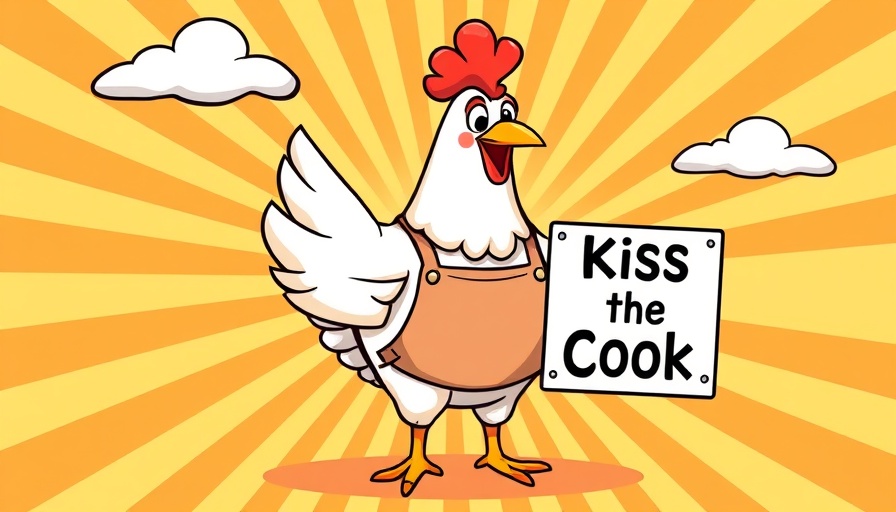
Exploring the Joy of Backyard Chickens
The Backyard Chicken community continues to thrive, with enthusiasts eager to participate in various contests, such as the recently held Poultry Caption Contest. This engaging competition not only showcases humor and creativity among participants but also serves to strengthen community bonds through shared interests in poultry care and welfare.
Why Community Engagement Matters
Participation in contests like these fosters a sense of belonging. Chicken keepers, from novice to expert, come together to share their passion for raising poultry, paving the way for the exchange of valuable insights about chicken health and husbandry practices. These interactions can lead to deeper understanding of disease prevention and health management strategies, which are crucial for maintaining a thriving flock.
The Link Between Humor and Health Awareness
Interestingly, humor often serves as a tool for education within such forums. Captions accompanying poultry photos can highlight various health tips or common poultry issues, subtly educating the community while entertaining them. As an avian veterinarian, I've noticed how these light-hearted approaches can enhance awareness of serious issues, such as biosecurity and vaccination, in a more digestible format.
Engage with Fellow Poultry Enthusiasts!
Join your local or online communities to participate in similar contests and discussions. Sharing experiences can be both fun and enlightening. You may discover new techniques to improve your flock or gain insights into the latest advancements in avian health care.
 Add Row
Add Row  Add
Add 




Write A Comment